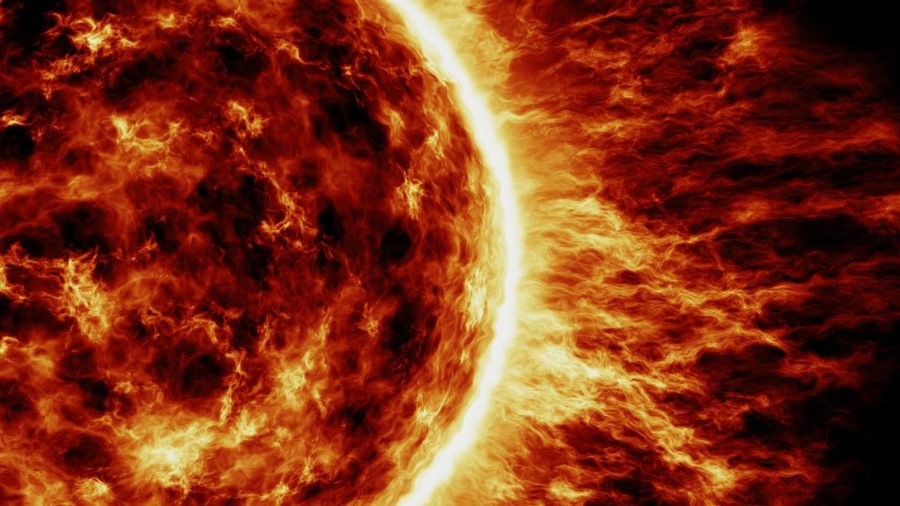Don’t look up! The sky is falling.
March 27, 2023
On February 11th the sun emitted a powerful solar flare that lasted a little over an hour, temporarily knocking out radio signals in parts of the world. Since then, more flares have and are expected to continue coming throughout 2023.
The solar flare was measured to be X1.1, X being the most powerful class of solar flares. Following this, at least 16 more have been emitted. So what is a solar flare anyway and how will they affect us?
“A solar flare happens when the sun emits a big eruption called a coronal mass ejection from the sun’s outer layer, the corona. Basically it just ejects radiation out into space and sometimes interacts with Earth’s Magnetosphere,” says Mr. Hemmer, the teacher who runs Belleville West’s Astronomy Club.
When solar flares come into contact with Earth’s atmosphere they wear down one of the outer layers of our planet, the ozone layer. This layer absorbs any harmful radiation or light emitted from the sun, keeping both the people and the planet safe.
“When I first heard about it, it did seem a little bit unusual and alarming,” says Elizabeth Stock, a leader of the Astronomy Club.
Since solar flares aren’t that heard of, many people became concerned about them and how they will affect us. They wondered whether they could potentially be dangerous to the planet.
“The biggest concern would be if communication devices were to go down because of a more powerful eruption, but I wouldn’t have too big of concerns over it,” Hemmer said.
Overall the radiation that could be harmful is prevented from passing the outer layer of atmosphere, so the flares themselves cannot hurt people or the environment. Due to this, there is no big reason to worry.
“One of the cool things they do, that’s not a bad effect, is the Northern lights. Solar flares are what give us our beautiful Northern Lights,” said Hemmer.
Despite all the concern, these flares can bring some positive things. They create a lot of beauty, even from just catching a glimpse of them in the sky.


